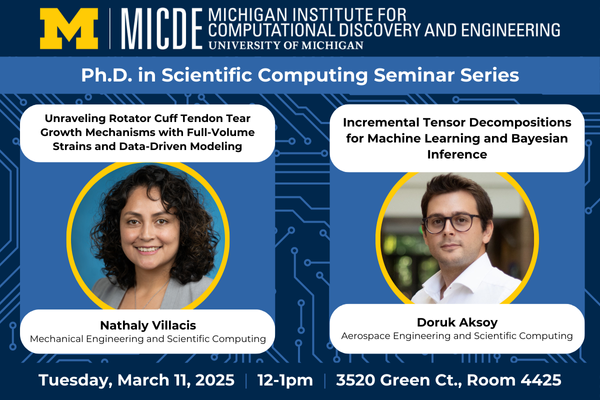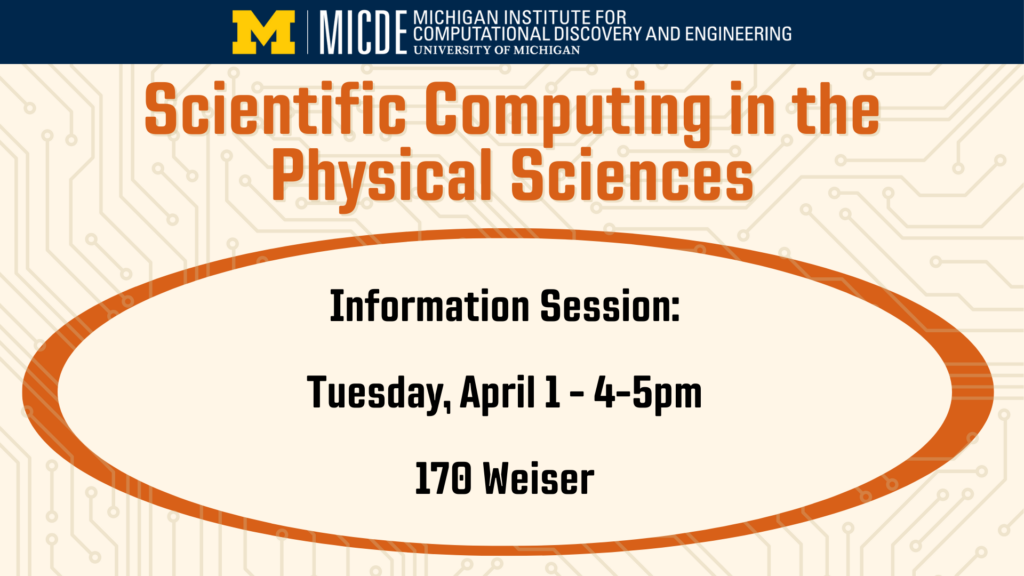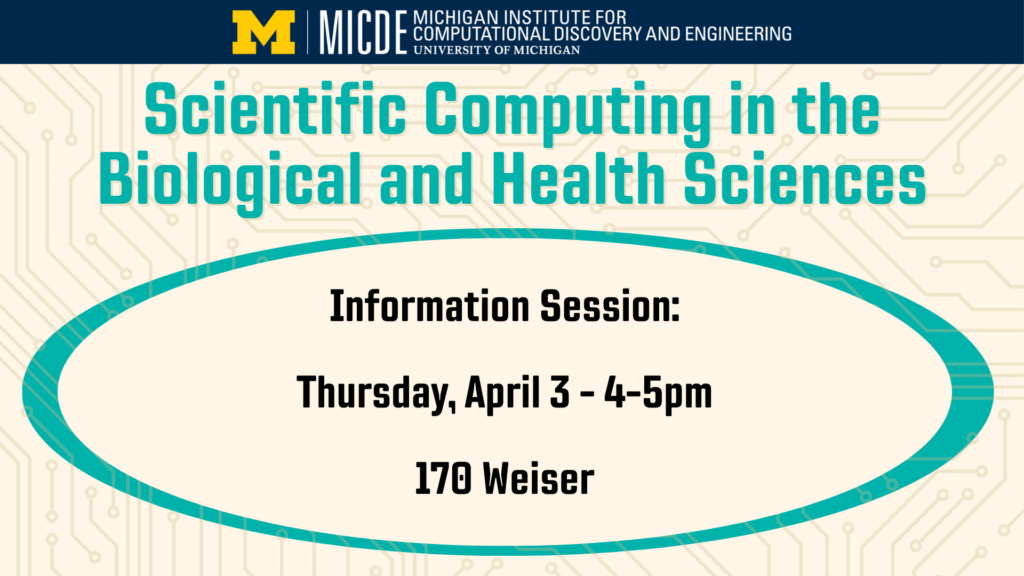Events

- This event has passed.
Ph.D. in Scientific Computing Student Seminars
March 11 @ 12:00 pm - 1:00 pm
Venue: 4th floor conference room, Green Ct.

The MICDE PhD Student Seminar Series showcases the research of students in the Ph.D. in Scientific Computing. These events are open to the public, but we request that all who plan to attend register in advance. If you have any questions, please email micde-phd@umich.edu.
Register to attend
Unraveling Rotator Cuff Tendon Tear Growth Mechanisms with Full-Volume Strains and Data-Driven Modeling
In this talk, I will show how full-volume methods, which can probe internal locations of a material, enable the detection of regions with high shear strain concentration in intact and torn rotator cuff tendons. I will also explain my approach to use these full-volume datasets to develop a finite element model of this tendon using variational system identification, and future work to obtain validated computational models that can predict tear growth.
Nathaly Villacis, Mechanical Engineering and Scientific Computing
Nathaly is a fifth year Ph.D. candidate in Mechanical Engineering, who works at the Soft Tissue Mechanics Lab, supervised by Dr. Ellen Arruda. Her research involves the characterization of rotator cuff tendon tear growth with experimental and computational methods. She will work on machine learning models of the rotator cuff once she finishes her Ph.D.
Incremental Tensor Decompositions for Machine Learning and Bayesian Inference
With recent advancements in large-scale parallel computing, there is an increased interest in constructing high-fidelity digital twins of complex systems. Especially for systems that have limited physical experimentation possibilities, high-fidelity simulations may provide the main source of information for constructing digital twins. However, performing such simulations is computationally intensive and generates extreme amounts of data. The size of the generated simulation data makes it challenging to use the data in further analysis. As the spatial and temporal resolution of these simulations grow, even storing the data may become a serious bottleneck. This talk proposes a solution to this multi-faceted problem through the use of low-rank tensor decompositions. Specifically, we present incremental algorithms that provide computationally efficient ways of compressing data with accuracy guarantees. We showcase a diverse array of applications, from 3D turbulent Navier-Stokes simulations to Minecraft gameplay videos, demonstrating the versatility and power of these techniques.
Doruk Aksoy, Aerospace Engineering and Scientific Computing
Doruk is a 5th year Ph.D. candidate in the Department of Aerospace Engineering in the Computational Autonomy group. His research focuses on developing incremental low-rank tensor decomposition algorithms to compress large-scale data for downstream machine learning applications.


